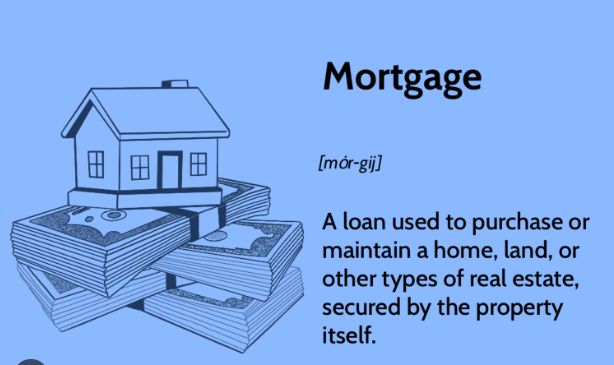A higher credit score demonstrates your creditworthiness, leading to lower interest rates on personal loans. Pay your bills on time, keep credit utilization low, and monitor your credit report for errors.Compare interest rates and terms from multiple lenders to find the most competitive offer. Even a slight difference in interest rates can significantly impact the overall cost of your loan.Opt for a shorter loan tenure if you can afford higher monthly payments. Shorter loan terms typically come with lower interest rates, reducing the total interest paid over time. Maintain a Good Credit Score
Maintain a Good Credit Score
Maintaining a good credit score is crucial in avoiding higher interest rates on personal loans. Here are some key points to consider:
- Pay bills on time: Consistently making timely payments on all your credit obligations, including loans, credit cards, and utility bills, helps establish a positive payment history and demonstrates financial responsibility.
- Manage credit utilization: Keep your credit card balances low relative to your credit limits. High credit utilization can negatively impact your credit score and signal a higher risk to lenders.
- Avoid excessive debt: Minimize the number of loans and credit accounts you have. Lenders consider your overall debt load when assessing your creditworthiness.
- Regularly check your credit report: Obtain a free copy of your credit report from credit bureaus and review it for errors or inaccuracies. Dispute any discrepancies and ensure that your credit report reflects accurate information.
- Limit credit inquiries: Multiple credit inquiries within a short period can negatively impact your credit score. When shopping for loans, try to keep loan applications within a focused timeframe to minimize the impact on your credit score.
By maintaining a good credit score, you demonstrate your creditworthiness to lenders, making you more likely to qualify for personal loans with lower interest rates.
Shop Around for the Best Rates
Shopping around for the best rates is essential in avoiding higher interest on your personal loan. Consider the following tips when comparing loan offers:
- Research multiple lenders: Explore various lenders such as banks, credit unions, and online lenders. Each may have different interest rates and terms for personal loans.
- Compare APRs: Look beyond the advertised interest rate and focus on the Annual Percentage Rate (APR), which includes both the interest rate and any applicable fees. The APR provides a more accurate representation of the overall cost of the loan.
- Consider online loan marketplaces: Utilize online loan marketplaces that allow you to compare offers from multiple lenders in one place. This can save time and make it easier to find the most competitive rates.
- Negotiate with lenders: Once you have gathered loan offers, don’t hesitate to negotiate with lenders. Depending on your creditworthiness and the competition in the market, you may be able to secure a lower interest rate or favorable terms.
- Read the fine print: Carefully review the loan terms and conditions, including any hidden fees, prepayment penalties, or other charges that could impact the total cost of the loan. Ensure that you fully understand all aspects of the loan before committing.
By shopping around and comparing loan offers, you can identify lenders offering lower interest rates and better terms, ultimately saving money on your personal loan.
Shorten the Loan Tenure
Shortening the loan tenure is an effective strategy to avoid paying higher interest on your personal loan. Here’s why it can be beneficial:
- Reduced Total Interest: With a shorter loan tenure, you will pay off the loan faster, resulting in lower total interest payments over the life of the loan. This can save you a significant amount of money in interest charges.
- Lower Risk for Lenders: Lenders typically offer lower interest rates for shorter loan tenures. This is because the risk of default decreases when the loan is repaid quickly, making it a more attractive option for lenders.
- Faster Debt Repayment: By opting for a shorter tenure, you can clear your debt sooner, reducing your financial burden and achieving financial freedom at an earlier stage. This can free up your monthly cash flow for other financial goals or investments.
- Financial Discipline: Shorter loan tenures require higher monthly payments, encouraging financial discipline and helping you develop a habit of timely repayment. This can positively impact your credit score and future borrowing opportunities.
- Flexibility in Future Financial Plans: Paying off your personal loan faster opens up more possibilities for future financial plans. You’ll have the freedom to pursue other goals such as saving for a down payment on a house, investing in a business, or planning for retirement.
However, before opting for a shorter loan tenure, ensure that you can comfortably afford the higher monthly payments. Consider your income, expenses, and financial goals to determine the most suitable loan tenure for your situation.
Avoid Unnecessary Fees
Avoiding unnecessary fees is essential to prevent paying higher costs on your personal loan. Here’s what you can do:
- Read the loan agreement carefully: Thoroughly review the loan agreement to understand all fees associated with the loan. Look for origination fees, processing fees, prepayment penalties, late payment fees, or any other charges.
- Compare fee structures: Different lenders may have varying fee structures. Compare offers from multiple lenders to identify those with lower or no fees. Consider the overall cost of the loan, including both interest rates and fees, to make an informed decision.
- Negotiate or waive fees: Some lenders may be open to negotiating or waiving certain fees. If you have a strong credit history or are a loyal customer, it’s worth discussing the fee terms with the lender to see if any adjustments can be made.
- Avoid unnecessary add-ons: Be cautious of optional add-ons or insurance products offered by lenders. Evaluate whether they are truly necessary for your situation, as they can increase the total cost of the loan.
- Make timely payments: Late payment fees can add up quickly, so make sure to pay your loan installments on time. Set up reminders or automatic payments to avoid missing any due dates.
- Consider credit unions or community banks: Credit unions and community banks often offer more competitive rates and lower fees compared to larger financial institutions. Explore these options to potentially find better terms for your loan.
By being vigilant and understanding the fee structure associated with your personal loan, you can avoid unnecessary charges and keep your borrowing costs as low as possible.






